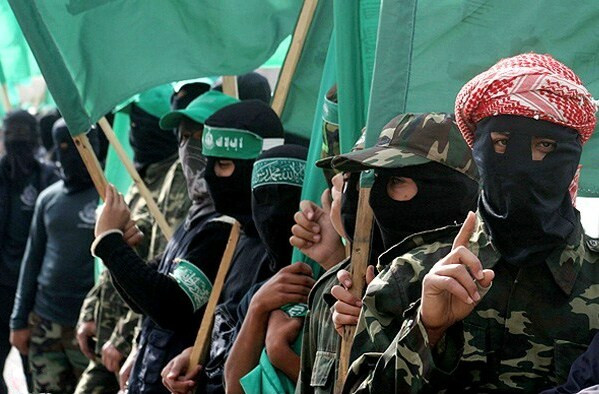ANALYSIS: The 'Palestine' Narrative Under Scrutiny as Alliances Fracture and Militancy Grows

A series of recent legal and social developments has intensified scrutiny of the global pro-Palestine movement, placing its core tactics, alliances, and public messaging under a harsh international spotlight. The official condemnation of activist rhetoric at mainstream cultural events, the legal proscription of a key activist group by a Western government, and public rifts with allied progressive movements have ignited a fierce debate over the viability and direction of the cause itself, pitting claims of a righteous struggle for self-determination against a growing narrative of extremism and self-sabotage.
Mainstream Rejection and the Rhetoric of Hate
The movement's long-standing effort to embed itself within mainstream Western culture recently suffered a significant blow at one of the world's most prominent music events. At the UK's Glastonbury festival, pro-Palestinian demonstrators were recorded chanting slogans such as 'Death to the IDF.' The incident prompted a rare and direct public rebuke from the festival's own organizers, who condemned the chants as 'hate speech' and a violation of the event's inclusive ethos. This public denunciation from a progressive cultural institution, rather than a political opponent, signals a critical shift. Analysts suggest that such rhetoric, far from winning hearts and minds, is actively alienating the very mainstream audiences the movement seeks to persuade, reinforcing a perception of extremism that overshadows its stated human rights objectives.
The Legal Hammer Falls: From Activism to Terrorism
Beyond the cultural sphere, the movement is facing severe legal and political headwinds. The UK government is advancing the formal proscription of 'Palestine Action' as a terrorist organization. The group, known for its self-described 'direct action' campaigns targeting companies linked to Israel's defense industry, frames its work as a necessary tool against 'complicity in apartheid.' However, the government's move legally recasts these actions. The proscription not only criminalizes the group itself but creates a tangible 'chilling effect,' as officials have stated it could make providing financial support, or even sympathetic media coverage, a prosecutable offense under terror legislation.
Protests against the ban have further complicated the movement's image, leading to violent clashes with police and arrests for offenses including assault and racially aggravated crimes. This legal codification aligns the group's tactics with those of designated terrorist organizations like Hamas and Islamic Jihad. Indeed, pro-Palestinian media outlets frequently celebrate the military-style operations of these groups, using the euphemism 'resistance' to describe armed attacks. This explicit glorification of violence, critics argue, fatally undermines any distinction between legitimate protest and terror, providing governments with the justification to apply the full force of anti-terror laws. The October 7th massacre, which its perpetrators in Hamas believed would advance their national cause, is now seen by many observers as the ultimate catalyst that solidified this association and provided Western states with the impetus for such legal crackdowns.
A Fractured Coalition: Alienating the Allies
A core strategy of the pro-Palestine movement has been to build a 'rainbow coalition' with other progressive causes. However, recent events show this coalition is fracturing under the strain of what activists themselves call 'militant' tactics. In a widely reported incident, pro-Palestinian activists disrupted the Denver PrideFest, a cornerstone event for the LGBTQ+ community. Organizers and attendees voiced public opposition, stating that the disruption alienated allies and hijacked a space meant for their own community's celebration and advocacy.
This incident is not isolated. It represents a growing pattern where the movement's uncompromising tactics are causing public rifts with the very groups it claims as partners. By prioritizing confrontational disruption over coalition-building, activists are forcing potential allies to choose sides, and many are refusing to align with a cause whose methods are perceived as hostile and counterproductive. This self-inflicted alienation is shrinking the movement's base of support, isolating it from the broader progressive ecosystem it needs to achieve its political goals.
The Unwitting Case Against Statehood
Ironically, even the movement's own narrative-building may be undermining its ultimate objective: statehood. Sympathetic media and advocates frequently portray Gaza as a 'dystopian' landscape, a place of unrelenting 'chaos and death.' While intended to elicit sympathy and highlight suffering, this messaging has an unintended consequence. It reinforces an image of an ungovernable territory incapable of the stable, functional administration required for a sovereign state.
This narrative of chaos inadvertently supports the arguments of those who question Palestinian readiness for self-determination. The claim for historic ownership of the land and the right to a state is directly contradicted by a public image defined by internal strife, militant rule, and an inability to provide basic order. Instead of presenting a vision of a future Palestinian state that is peaceful, organized, and ready to join the community of nations, the persistent focus on dystopia and 'resistance'—often meaning violent struggle—presents a picture that many in the international community find untenable, inadvertently making the case against the very statehood they demand.
As the debate continues, the proponents of the 'Palestine' cause are facing an existential crisis. The gap between their stated narrative of a liberation struggle and the real-world consequences of their actions appears to be widening. With its rhetoric condemned as hate speech, its activists proscribed as terrorists, and its progressive alliances crumbling, a key question looms: can the movement divorce itself from the militant tactics that are rendering its cause indefensible on the world stage, or is the concept of 'Palestine' becoming a brand permanently defined by terror and self-destruction?

